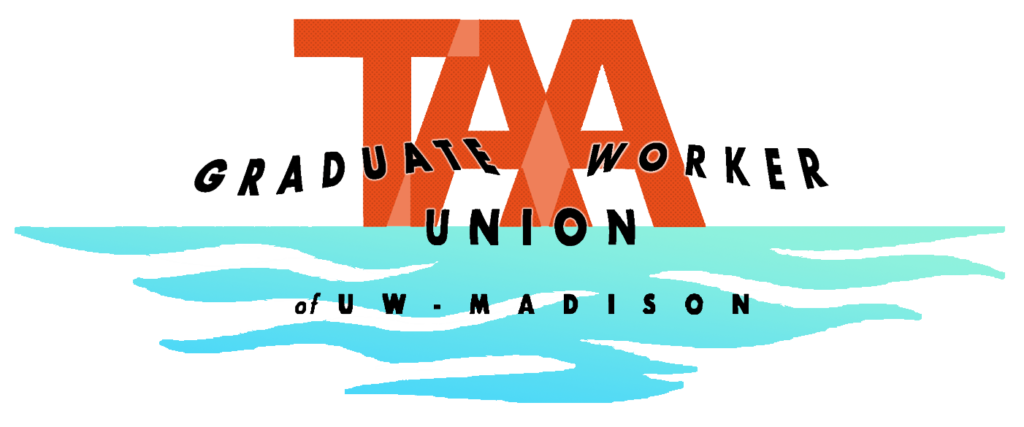February GAPP Update: Two More Meetings Remain in Contract-to-Handbook Process

The Spring Semester started with another meeting of the Graduate Assistant Policies and Procedures Committee, which only has two additional meetings scheduled before it is due to deliver recommendations to Vice Chancellor Heller, Provost Mangelsdorf, and Dean Karpus of the Graduate School. Discussions at this meeting focused on Articles I – VI of the TAA’s contract, which largely dealt with appointment letters, job descriptions, evaluation, and resources and campus space for graduate assistants.
The TAA representatives and university administrators reached consensus on some issues and an impasse on others. When the administrators did agreed to adopt the TAA’s language, they did so largely due to the efforts of the TAA’s GAPP Committee members to articulate the unique working conditions of graduate student workers on campus. Throughout the process, TAA membership has placed pressure on university administration to recognize these issues as important. Specific to appointment letters, the committee agreed that the issue of getting these letters on time was a problem, and discussed the steps needed to be taken in order to solve this issue. During this meeting, the grad reps were able to make sure that the university provided the resources for us to do our jobs: access to computers and necessary software, office supplies, personal protective equipment. Although administrators initially tried to remove our right to space on campus to do our jobs, we were able to come to a consensus that departments will continue to provide grad assistants with access to an office or shared workspace.
However, potentially more contentious issues, such as wages, benefits and trainings have yet to be discussed, and are on the agenda for the next meeting. Additionally, in order to encourage more feedback from the large graduate student worker community, as well as faculty members and department administrators, the committee agreed to schedule at least one public forum on April 10.
A strong show of support from TAA membership is critical to improving our working conditions and preserving as much of our contract as possible. These meetings are open to the public. Please show up with your work, with your grading—having more people in the room helps demonstrate that workers care about these policies.
At the last meeting, Greta Landis, a graduate assistant in Environment & Resources, took time to talk about the importance of GAPP meetings, and why more graduate students should attend.
Why did you decide to attend a GAPP meeting? 
I attended the recent GAPP meeting to learn more about the current process of writing appointments for graduate workers on campus, and to show support for the hard work the TAA volunteers have put into researching and writing the new handbook with campus administrators.
What did you ask, or what did you say?
For the most part, I come to listen. I didn’t ask anything last week.
How did it feel to speak out and ask a question or voice your opinion on the policies being discussed?
I’m encouraged to see the work that the TAA and administrators have done, especially toward clarifying language in the handbook, but there are still a lot of unanswered questions.
What was something you learned during the process? What do you think other graduate workers should know — and maybe don’t?
It’s pretty eye-opening how little our faculty have engaged with the GAPP revision process, and how many of the disagreements that the TAA has with the administration seem to boil down to administrative headaches. Flexible or vague language may make it easier for our supervisors to handle employment decisions, but it leaves graduate workers really vulnerable to miscommunication and unfair changes in our appointments and responsibilities.
Mark your calendars for the next GAPP Committee meeting:
Bascom 334
Tuesday, April 3
9:00 – 10:30 AM
